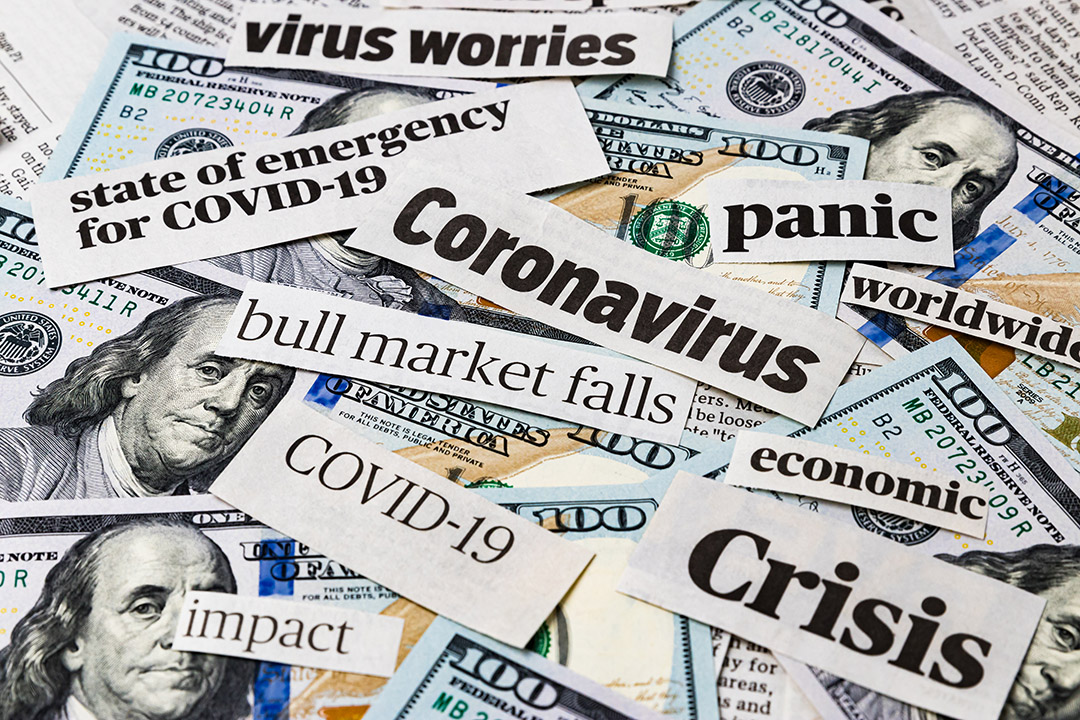

Last Friday I did a commentary piece for Nine’s A Current Affair and the programme’s long-term reporter Brady Halls asked me after we did our on-air Q&A, if I thought we were heading for a crash. My reaction was pretty prompt and shocked him as well as the nearby camera and sound guys. “No, I think we’ll get out of this without a crash!” I said, I guess with my usual optimism.
However I did add that I can see another period where the stock market does pull back. But if that happened, say down 10% or even 15%, I’d be telling my subscribers taking the Switzer Report that this is a buying opportunity.
But I did throw in one proviso: “We have to get a vaccine to let us travel around our country and then worldwide before the end of the year preferably, but at worst case by early next year.”
If the world can start heading back to normal living, travelling, dining, jumping in lifts and going back to work in CBDs, then we can avoid an economic crash, and consequently a stock market crash.
Overnight the Federal Reserve boss, Jeremy Powell, said he’ll let inflation get above the usual 2% target in the US, which means growth is going to be given a greater chance to boom in coming years. And following this, bank share prices rose and the Dow Jones Index went above its pre-Coronavirus crash levels!
Other central banks, including our own, will be encouraging growth and not worrying about inflation in coming years because economic growth is the only real solution, given the alternative is too scary for politicians to consider. It’s a really bad recession or depression that wipes out a lot of jobs, businesses and debts until we start from ground zero and rebuild the economy.
That’s what doomsday merchants are effectively wishing for when they argue governments shouldn’t intervene to encourage economic growth.
So given that, how is the economy responding to the government assistance that’s being thrown at it? Are the economic readings supporting my case that we will avoid a crash?
Here’s the latest data. Let’s look at the good news on the economy first:
The bad news is:
Those numbers tell us that big issues like investing, constructing and building homes are affected by the Coronavirus-created recession but the stimulus from the rescue programme and the getting-back-to-work and more normal social activities are all helping consumers spend. And because we can’t spend on tourism and hospitality as freely as we used to, we are buying stuff.
Clearly, if Victoria (which is nearly 25% of the economy) wasn’t in lockdown, our numbers would be a hell of a lot better. But we still have a CBD problem. The unwillingness of workers to go back to offices is impeding the return to economic normalcy and this reading on public transport shows this has to change.
In Sydney and NSW, the use of public transport is down 45.6%, Perth 35.5%, Brisbane and South-East Queensland 37.3% and Melbourne and Victoria is down 83.8% (though we all know why). This low use of public transport is explained by workers doing it from home.
For my “V-for-victory” optimistic scenario to come to pass, it relies on two Vs. First, that vaccine solution asap is critically important for economic growth to rebound in 2020. That’s exactly why the US stock market isn’t at record highs. Wall Street believes a vaccine will comes and the stimulus creates a big growth story.
Second, Victoria has to re-join the national economy. And when that happens, hopefully in company with a looming vaccine, we could really see a great 2020/21.
I really don’t want to contemplate the alternative. I believe we’ll beat this challenge because there’s a lot of Nelson Mandela in our collective resolve.
The great man said:“Do not judge me by my success, judge me by how many times I fell down and got back up again.”
And if you need more than my belief in my fellow man to remain optimistic, last week two of the USA’s best economists, Ed Yardeni and Jeremy Siegel, both gave the US economic recovery the thumbs up. And these two guys have a very good track record of being right.
“All in all, we’re still seeing that economies are recovering pretty well from what was basically a lockdown recession,” Yardeni told CNBC this week.
And Citigroup economists in the States were even more bullish. “The generally good health of the world economy pre-COVID and rapid fiscal action by governments fuelled a rebound in global activity that has been extremely sharp, V-shaped in fact,” they told their private bank clients.